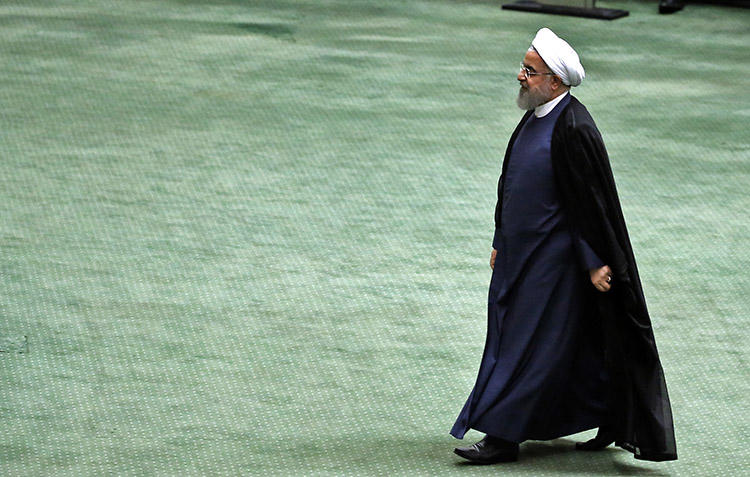New York, August 31, 2018–The Committee to Protect Journalists today condemned the harsh sentences Iranian authorities imposed on at least seven journalists over their coverage of protests by a religious order.
Iranian courts in July and August sentenced at least six journalists affiliated with Majzooban-e-Noor, a news website that focuses on the Gonabadi Dervish religious order, and a journalist from the state-run outlet Ensaf, to prison terms of between seven and 26 years, and ordered them to be flogged publicly and forced into exile and banned from political and social media activities on their eventual releases, according to news reports and rights organizations.
The journalists were arrested in late February after covering protests by the Dervish order in Tehran, according to reports and Human Rights Watch. Authorities arrested Reza Entesari and Kasra Nouri on February 19, and Mostafa Abdi on either February 19 or February 20, according to reports. CPJ was unable to determine the exact dates the other journalists were arrested.
“These horrifying sentences lay bare Iranian authorities’ depraved attitude toward journalists, as well as the hollow center of President Hassan Rouhani’s promises of reform,” said CPJ Middle East and North Africa Program Coordinator Sherif Mansour from Washington, D.C. “Iran should end its vicious campaign against journalists, and allow them to report freely.”
A revolutionary court on August 15 sentenced Abdi, an editor for Majzooban e-Noor, to 26 years in prison, 148 lashes, two years’ exile, and a two-year ban on political and social media activities, according to Human Rights Watch and Voice of America citing a Twitter post from his outlet. Abdi was convicted of “assembly and collusion against national security,” “disturbing public order,” “disobeying law enforcement agents,” and “propaganda against the state,” the New York-based Center for Human Rights in Iran reported.
A court sentenced Nouri, a reporter for Majzooban-e-Noor, to 12 years in prison, 74 lashes, two years’ exile in western Kermanshah province and a two-year ban on political and social media activities, according to reports from earlier this month, including the U.S.-funded Radio Free Europe/Radio Liberty. Human Rights Watch reported that the court accused Nouri of illegal activities including “reporting information about the Dervish minority to opposition media,” and “writing human rights articles against the state, ” and imposed a two-year travel ban after his release. CPJ was unable to determine the date of the court ruling.
A Tehran court sentenced Mohammad Sharifi Moghadam, a reporter for the site, to 12 years in prison, 74 lashes, two years’ exile and a two-year ban on political and social media activities for “spreading propaganda against the regime, ” RFE/RL and Majzooban-e-Noor reported in August.
Entesari, a reporter for Majzooban-e-Noor, and his brother Sina Entesari, a contributor, were each sentenced to seven years in prison, 74 lashes, two years’ exile, and a two-year ban on political and social media activities, according to reports in August. The Amsterdam-based Iranian media outlet Radio Zamaneh quoted a judge as saying that Sina Entesari was “one of the main directors of Madjzooban’s illegal site.”
Salaheddin Moradi, whom the website referred to as one of its “administrators,” was sentenced to seven years in prison, 74 lashes, and two years’ exile. The ruling judge described him as one the website’s main directors.
Separately, a court sentenced Sadegh Qaisari, a reporter for the state-run website Ensaf, to seven years in prison, 74 lashes, a two-year travel ban, and a two-year ban on media activities, the London-based Iranian news site Kayhan and Voice of America reported in July. Ensaf reported in July that his family had been recently told of the ruling against Qaisari, who was arrested while covering the protests for the outlet.
The convictions come as Iran continues its harsh stance toward press freedom despite promises of reform from Rouhani. In a May report, CPJ found that Iranian hardliners in the government continue to imprison journalists, block websites, and harass reporters.
